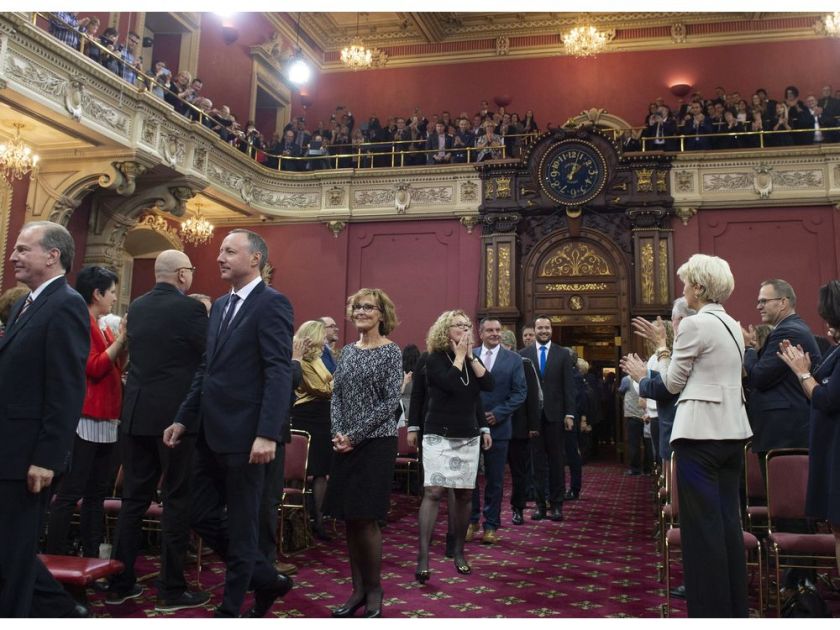The independence question may have gone away after the Oct. 1 Quebec election, but the indépendantistes haven’t.
They’re still in positions of influence in the National Assembly, and in the new Coalition Avenir Québec government.
There are the 10 MNAs each for the two pro-independence parties, the Parti Québécois and Québec solidaire. In the latter, independence-first MNAs even form a sort of caucus within the caucus.
The most prominent new Solidaire MNAs are Sol Zanetti and Catherine Dorion. They are identified with Option nationale, a hardline pro-independence former party that still exists as a “collective” within QS. Zanetti was the ON party leader, and is identified on the collective’s website as its spokesperson.
And with the election of Zanetti and Dorion to the Assembly, ON has more access to media exposure.
Also, observers have noted a migration of former Péquistes to the offices of ministers in the new CAQ government headed by François Legault, himself a former PQ minister.
This week, Radio-Canada reported that, while the government has recruited a few ex-Liberals to work for Coalition ministers, most of the staffers hired so far have come from the PQ.
That includes, in particular, 12 of the 26 ministerial chiefs of staff, the chief advisers to the ministers and their liaison with the premier’s office. Those positions are especially important in the new CAQ government, because of the inexperience of almost all of the ministers.
Among the chiefs of staff who have served PQ ministers are Legault’s, and those of Geneviève Guilbault, the deputy premier and minister of public security, and several other ministers in the most important portfolios, such as finance, health and justice. A former PQ member of the Assembly, Jonathan Valois, is head of the office of the families minister.
“It gives the impression that they took a directory of Péquiste governments and called everybody,” a former PQ strategist told Radio-Canada.
It makes sense that the new government would turn to former PQ staffers. It needs their experience in government to make up for the lack of it among the new ministers, which has been apparent since the election. And since the CAQ has never before formed a government, it can’t call upon a pool of qualified job candidates among its own members.
On the other side, the ex-Péquistes are political near-orphans, now that the PQ has been reduced to a third party in the Assembly with its future in doubt. It has been replaced as the main nationalist party by the Coalition. And while Legault vowed before the election that a CAQ government would “never, never” hold a referendum on independence, there is still an affinity between the two parties.
Doubts have been raised, however, about the sincerity and permanence of the instant Caquistes’ apparent conversion.
The PQ’s interim leader, Pascal Bérubé, insinuated this week that some of the converts have sold out for financial considerations. “Those are paying jobs, not volunteer positions,” he told reporters. “Draw your own conclusions.” Everybody made career choices “according to their values, and their interests.”
Radio-Canada reported that a minister’s chief of staff is currently paid up to $150,722 a year. The job could last four years, since the CAQ has a majority in the Assembly.
And some indépendantistes hope that the ex-Péquistes in Legault’s government will contribute to a revival of the independence movement.
On his blog for Le Journal de Montréal, nationalist commentator Mathieu Bock-Côté said he does not question the loyalty of those “dedicated sovereignists” to the CAQ government.
He doubted, however, that their indépendantiste aspirations have been “completely extinguished.” And while he did not believe that Legault had a secret plan to achieve independence, he hoped that a clash between Legault’s government and Ottawa over Quebec identity would create a crisis that would revive the independence movement.
That happened once before, in the 1990s, after the failure of the Meech Lake constitutional proposal giving Quebec special status.





























